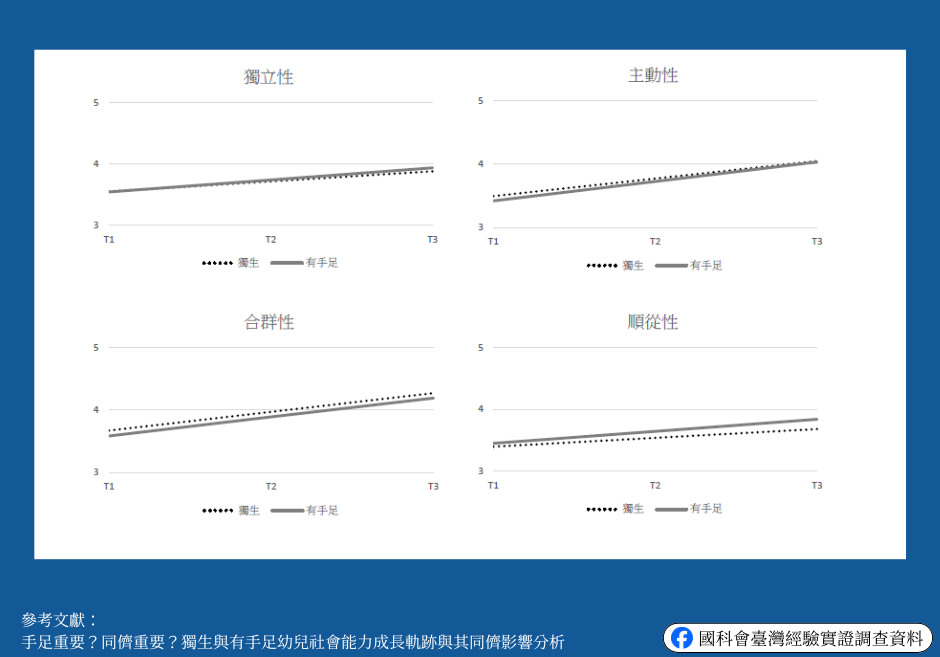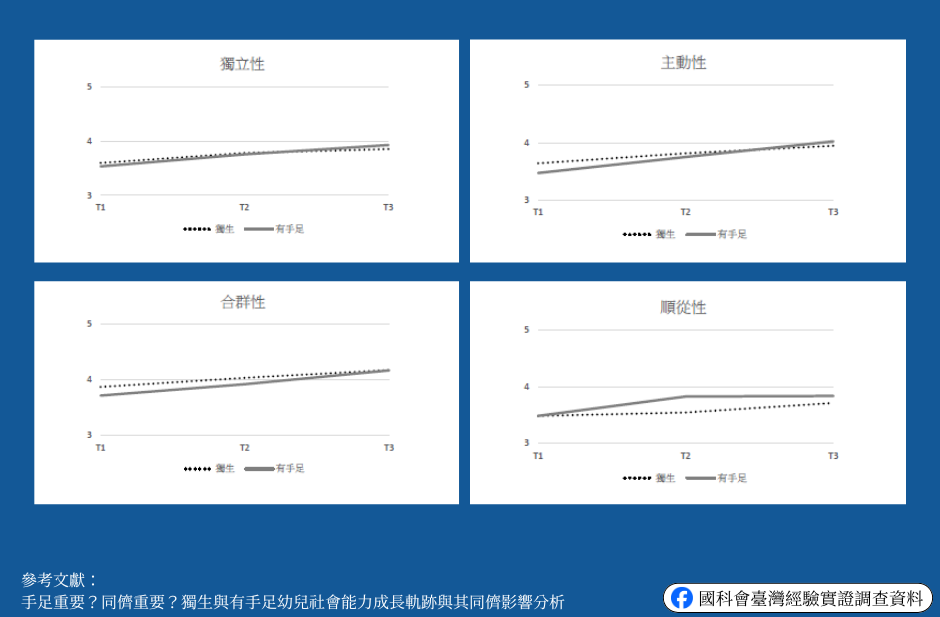Were you an only child growing up, or did you have siblings? At what age did you start school and begin interacting with peers?
Professors Shu-Man Huang, Li-Tuan Chou, and Ming-Fun Yip from National Taiwan Normal University, along with Professor Tsung-Jen Wu from Cheng Shiu University, utilized data from the Kids in Taiwan: National Longitudinal Study of Child Development & Care (KIT), specifically from the 36-month-old cohort. The study focused on children who had siblings at 36 months and those who remained only children at 60 months, examining how having siblings or peers influenced the development of four social competencies: independence, proactiveness, sociability, and compliance.
The study found that children with siblings exhibited higher levels of compliance. However, there were no significant differences between children and those with siblings in terms of independence, proactiveness, and sociability. Interestingly, the more time children spend interacting with peers, the greater their growth in these three areas—highlighting the crucial role of peer interactions in social skill development.

Further analysis revealed that the duration of peer interaction had a stronger impact on only children than on those with siblings. In other words, for children without siblings, the more years they spent engaging with peers, the better they developed independence, proactiveness, and sociability. However, as children grew older, the influence of peer interaction on these competencies gradually diminished.

The study concluded that both sibling and peer interactions contribute to social development. While children with siblings benefit from both sibling and peer influences, allowing them to gradually catch up in social competencies, only children can also enhance their social skills through daycare, preschool, or school-based peer interactions—regardless of daily school hours.
Original links:Influence of Peers on the Growth Trajectory of the Social Competence of Only Children and Children with Siblings

